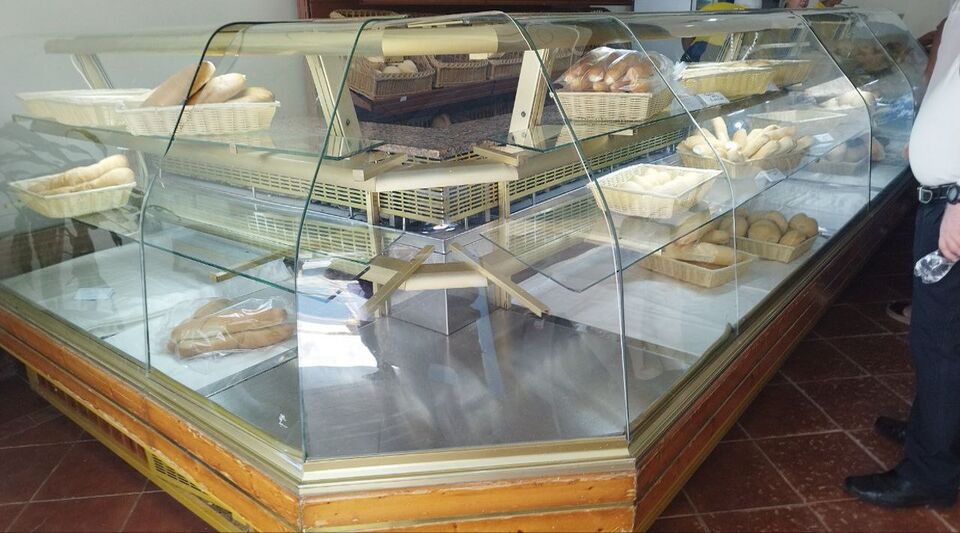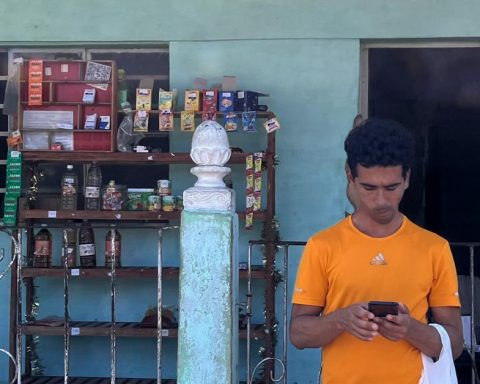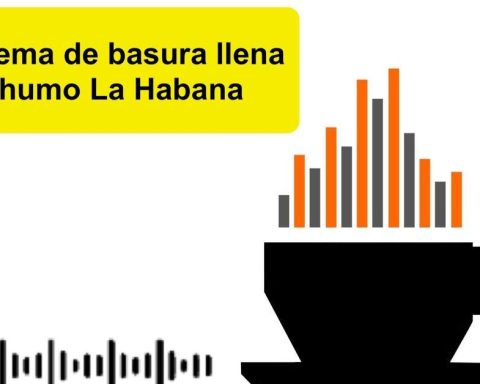The smell guides customers to their doors. It smells of freshly baked bread, warm cake and fruit jam. The San José bakery on Obispo street, in Old Havana, has reopened under cooperative management after gradually fading away due to the inability of the Cuban State to maintain varied offers with subsidized prices.
A Canadian tourist who was passing through the main shopping street of the historic center of Havana this Tuesday stopped to take some photos of the place with its blue doors and its façade that reproduces the lithograph The baker and the malojero made by the artist Frédéric Mialhe in the mid-19th century. Behind her, another group of Russian travelers repeated the gesture.
“Is there bread for glory?” asked an elderly Cuban with a cap with the initials NY. “We ran out but in a while we will take out again,” clarified the employee. At least two more customers were waiting for that dessert made of flour and sugar. “I come walking from Centro Habana because here they make it of quality,” clarified the man who, however, considers that the price of 60 pesos for each one is “very expensive.”
If the smallest round bread costs 40 pesos, the snack that your grandson must take to school would cost “about 200 a week, plus what you have to put inside, which is already assembled at 500”
Another buyer praised that “they deliver the sweets on a piece of paper, something that has already been lost in Cuba” and a third calculated that if the smallest round loaf cost 40 pesos, the snack that her grandson must take to school would cost “in about 200 a week, plus what you have to put inside, which already costs 500”.
But San José does not look like a bakery that Cuban families who live only on their salary go to visit. “Since we reopened, many tourists come through Obispo, see this open and end up fussing over it and buying some bread,” an employee who works in the oven area told this newspaper. “For a foreigner it is cheap because at the exchange rate, they can buy up to three good loaves of bread with one dollar.”
Many visitors who barely leave the more touristy area of Old Havana might come to believe that all Cuban bakeries are just as well-stocked and clean. But it is enough to leave the retouched perimeter to stumble upon other scenes. Until a few days ago, the line stretched out in front of a state bakery on Calle Reina, in Centro Habana, where prices are ten times less and the line can last hours.
In this dilapidated business, located in a portal where the ceiling threatens to fall on the heads of the clients, this week they have not even offered their usual “dog” breads, with little fat and an emaciated appearance, which previously sold for 12 pesos each. one, six times less than in the cooperative bakery in Old Havana.
Those who cannot afford to go to the store with its decorated façade and blue doors near the Havana Cathedral, only have rationed bread from the market: a product of barely 80 grams per person, which costs one peso and most of sometimes it is smaller, tasteless and hard than what is established by the regulations of the Provincial Company of the Food Industry of Havana.
“The Government can maintain that price, although badly because it directly imports the flour and what it pays the workers is very little”
“The government can maintain that price, albeit badly, because it directly imports the flour and what it pays the workers is very little,” Dunia, an employee of a private bakery on J street in El Vedado, Havana, explained to this newspaper. “The raw material is much more expensive for us and that is why we have to set these prices,” she responds to those who criticize that a Pullman bread, already cut into slices, costs 180 pesos at her store.
Between the State and the small self-employed worker, the formula seems to give their managers more margin of profit. “The initial investment does not fall on a single person and that is why you can start off on a better footing,” acknowledges Dunia, who before moving on to a private business worked for a time in a downtown restaurant with a candy store managed by several partners under a cooperative regime.
“Cooperatives are given more facilities and, at least in the one where I worked, there were people with many contacts with ministries, bosses and officials,” he warns. “But I left because although the business was going well, all that about sharing the profits and collegiate management is only fulfilled on paper. Now I earn a little more but I also work in a business that sells more expensive because it doesn’t have as many facilities”.
Dunia is skeptical of whether the experience of the San José bakery could be extended to other emblematic places in the city that languish under official management. “They would not have a large clientele in other neighborhoods because the prices are very high. It is on Obispo street because that is like in another country, the people who buy there are not ordinary Cubans,” she adds.
At the top of the colorful bakery on Calle Obispo, the Café Santo Domingo is still waiting for the same fate: to reopen without state guardianship, with the smell of cappuccino wafting in the air and prices in three figures.
________________________
Collaborate with our work:
The team of 14ymedio He is committed to doing serious journalism that reflects the reality of deep Cuba. Thank you for accompanying us on this long road. We invite you to continue supporting us, but this time becoming a member of our newspaper. Together we can continue transforming journalism in Cuba.















